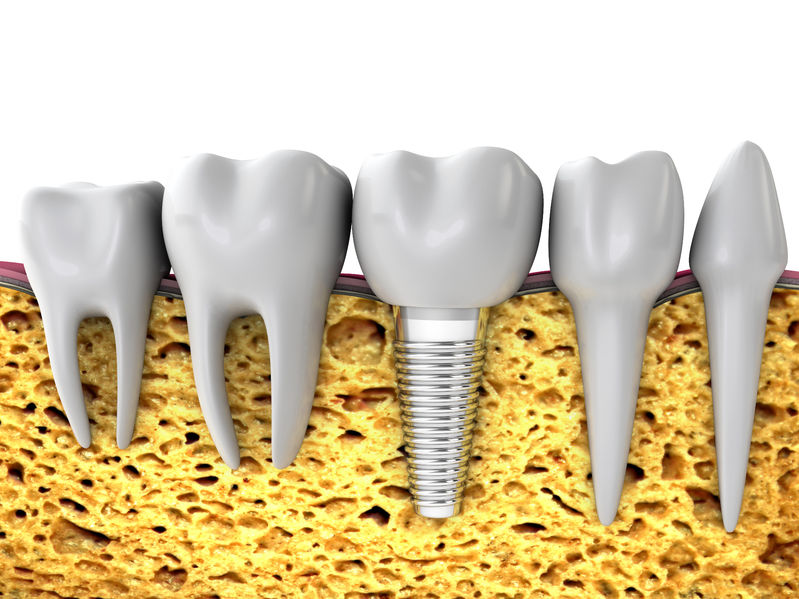What Side Effects Can You Expect with Dental Implants?
There is no doubt that dental implants can represent your best option available to replace badly damaged or missing teeth. No treatment can come close in providing the aesthetics, strength, and stability as what implants does. It doesn’t matter if you are missing only one or several teeth, or even all of them, implant-supported dentures, crowns, or bridges can restore your mouth to health and proper functioning.

If you consider replacing only one or even more missing teeth with dental implants, it can be the wisest choice you ever made. It’s one solution that is currently seen as the most effective for teeth that is missing. Dental Implants is at this time the only way to replace your tooth’s complete structure, both below and above your gum line.
The importance of this is that without any stimulation, bone of your missing tooth’s root in that area can lose its density. The titanium of implants can bond with your bone and stop the process. Thus, assisting to keep the jawbone strong.
Potential risks, problems, and complications that come with dental implants
During any kind of surgery there generally is some kind of potential risks and complications for patients. Thus, it’s important for dentists to plan carefully and make sure the patient will be healthy enough to heal properly after oral surgery.
The same as with any other procedure of oral surgery factors like allergies, infections, bleeding disorders, medications and existing medical conditions needs to be reviewed carefully before doing the procedure. Fortunately, implants have quite a high success rate.
Typically, failures could occur due to the following unlikely events:
Poor bone quality or quantity.
When the dental implant is poorly positioned.
Damage of surrounding areas of the teeth, blood vessels or nerves.
By overloading the implant.
Fractures of the implant.
Infection.
Most typical dental implant side effects with surgery
Bruising
Discoloration or bruising on your gums, jaw line, and neck after surgery might be noticeable.
Swelling
It’s very common to have swelling after this kind of surgery. Swelling may be noticed on the cheeks, jaw, and gums. For minimizing swelling, ice packs can be applied for a period of forty-eight hours with fifteen minute intervals after surgery. The swelling and bruising can last for about one week.
Soreness
Pain will be experienced in the gums and jaw but you can receive painkillers with a prescription to manage it.
Other side effects you may experience
Build up of bacteria
If you have a problem with receding gums, the screws from the implant can be visible. Except for being unsightly, it might also collect some bacteria which most likely can cause infection. In cases where it’s severe, you can lose your implant.
Inflammation and infection
Inflammation and infection may well be in the surrounding areas of your implant. It could be caused if you have a virus or you don’t keep your teeth very clean. Yet, most of the time, it occurs in patients that smoke or if they are diabetic.
In the case of rejection
Implants can be rejected due to a problem with your immune system. It’s not sure why this happens. If you smoke you can be at a higher risk of implant rejection. Therefore, it is wise to try and stop smoking prior to your surgery. Patients with titanium allergies or who grind on their teeth can also be at risk of implant rejection.
Nerves that is trapped
Damage to your nerves can happen when your dentist injects you with local anesthetic. Compression of the nerve can occur during your implant placement, and it may result in pain or numbness. This can become very challenging going forward with things such as kissing, drinking, eating, and talking, as well as shaving. Make sure to use a dentist with implant experience in order to avoid any of these risks.

Follow-up care is important after dental implants
There is a risk after dental implants to develop a condition known as peri-implantitis. It’s caused due to inflammation of your bone and gum in the surrounding area of the implant. This inflammation in surrounding tissues are caused by bacterial infections or excessive biting forces. If the problem is left untreated it may result in you losing your implant.
After you received your implants, follow-ups with your dentist and regular maintenance care procedures at home can avoid this condition. Home care of your implants includes flossing and brushing to keep plaque and food debris away. With your dentist visit, he/she will examine your surrounding hard and soft tissues with special tools. These tools are used to remove any calcified harden deposits from around your implant.
If there are any issues your dentist can discuss these with you immediately.